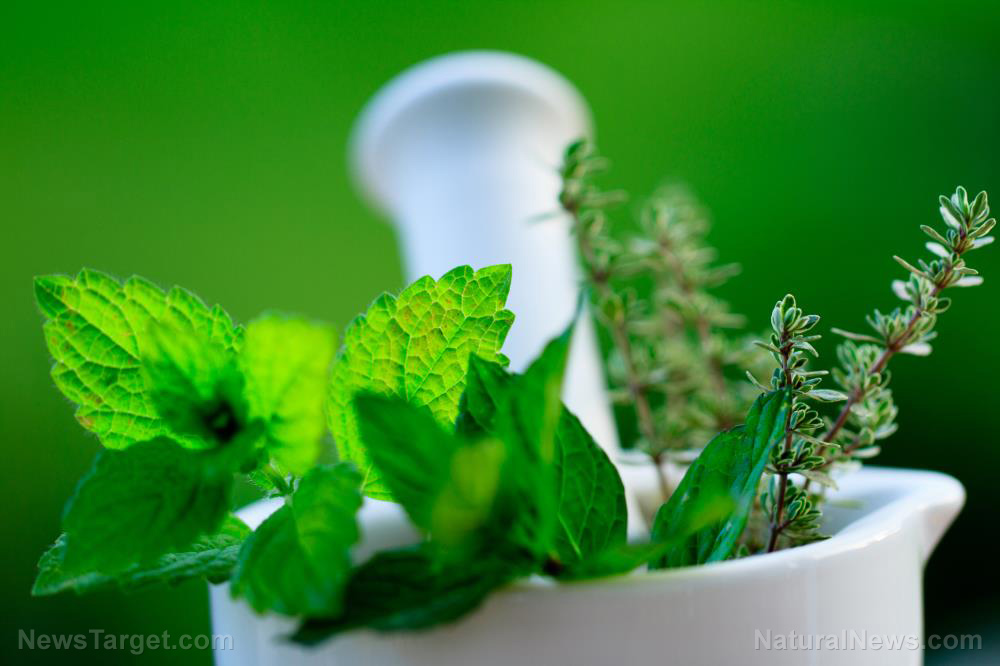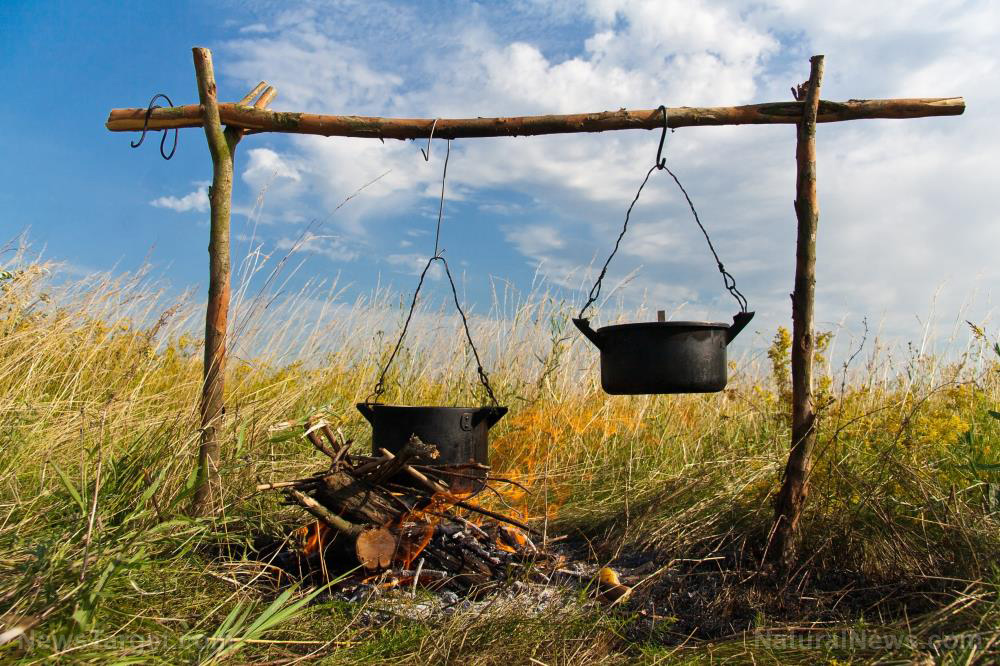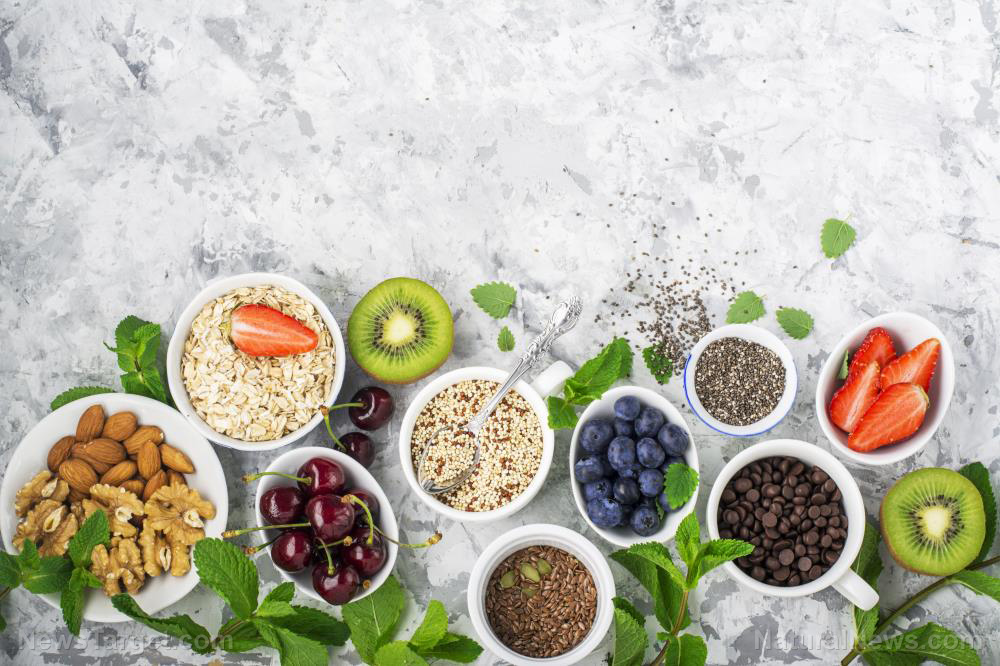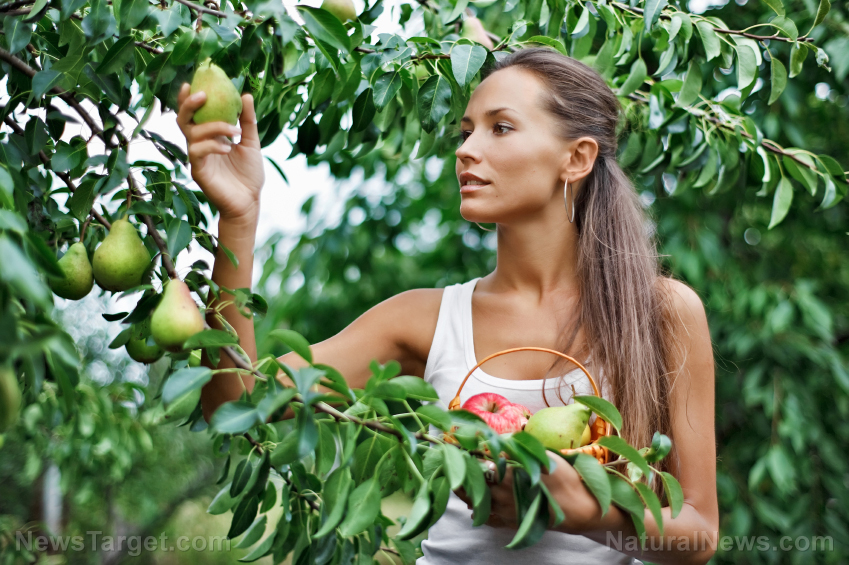20 Useful medicinal herbs to plant in your home garden
08/15/2022 / By Zoey Sky

Herbs are often used to give various dishes a flavor boost, but did you know that many of these plants also have medicinal uses?
For example, aloe vera is used to treat skin conditions while lemon balm is used to treat an upset stomach. Before SHTF, plant different medicinal herbs in your home garden so you can make healing salves or poultices if you need them. (h/t to TheEpochTimes.com)
Aloe vera
Aloe vera is often used to help wounds heal and treat skin and hair conditions. When taken orally, aloe vera acts as a natural laxative.
To grow aloe vera indoors, plant it in a terra cotta pot with well-drained soil. It’s best to mix equal parts sand and potting soil or buy a special succulent mix. A terra cotta pot also dries faster compared to plastic or glazed pots.
Aloe vera doesn’t need a lot of space and thrives in snug conditions.
Place the potted aloe in a bright, sunny place so it keeps growing. Water the plant heavily at least once every two weeks but wait until the soil dries out fully.
Aloe vera is a desert species so keeping the soil moist will make the roots rot. You are watering the plant too much if it has limp or brown leaves.
If you live in a warm climate year-round, like Zone 10 or higher on the United States Department of Agriculture Plant Hardiness Map, you can grow aloe vera outside. Note that freezing temperatures will kill the leaves and frozen soil will kill the roots, meaning no new sprouts will grow.
Select a spot in your garden with a well-drained bed. You won’t need to water aloe grown outdoors except during droughts. If it hasn’t rained in months, give the plant a good soaking and then let the soil dry out again.
Bergamot
Bergamot contains essential oils that can be used to help treat high fever, intestinal worms and malaria.
Bergamot can also be used for aromatherapy. The herb also acts as a tonic for the nervous system. Use bergamot for aromatherapy to relieve anxiety, depression, stress and tension headaches.
Burdock
Burdock is used to treat conditions like arthritis, burns, canker sores, gout, glandular swelling, hemorrhoids and wounds. (Related: Home gardening for preppers: 7 Medicinal herbs you can propagate from cuttings.)
Calendula
Calendula is full of beneficial flavonoids. These compounds are believed to provide health benefits through cell signaling pathways and antioxidant effects.
Calendula is a natural antifungal and antiseptic that promotes wound healing. It is a freely reseeding annual that blooms all season long. The plant bears beautiful yellow and orange flowers that will help beautify your garden.
You can harvest the petals fresh or dry entire blooms, which close in the evening, before they form seeds.
Chamomile
Chamomile is used to treat an upset stomach. The plant is also used to treat issues related to morning sickness, sleeping, skin swelling and other skin problems.
Chickweed
Chickweed is a nutritious herb with impressive astringent, diuretic, expectorant, laxative and demulcent properties.
Dandelion
Considered by some as a pesky garden weed, dandelion is a flowering plant used as a detoxifying agent for the liver and the kidney.
Use dandelion to help treat infections, reduce swelling, balance blood sugar and improve pancreas function.
Echinacea
Echinacea is used to protect against cancer, relieve joint pain, stimulate the growth of blood cells and boost immune health.
Echinacea or “coneflowers” have cone-shaped inflorescences capped by a prickly dome of seed heads. Echinacea plants are important sources of nectar for butterflies and many birds such as goldfinches that flock to the plants to consume their seeds.
Echinacea thrives in full to partial sun so plant it in an area that receives at least four hours of sunlight per day. Since it grows natively along the edges of woodlands, choose a spot with morning shade and afternoon sun or vice versa.
Echinacea can tolerate poor rocky soil, but will not grow in wet, mucky soil. Mulch plants with compost at the time of planting.
Echinacea establishes deep taproots and does not like to be moved once established.
Plant echinacea in the spring or the fall and in well-drained soil in full to part sun. Echinacea is also easy to grow from seed, but it needs a cold, moist period (stratification) before it can germinate.
Sow echinacea seeds thickly in the fall, after a hard frost in the north and before winter rains elsewhere. Cover seeds lightly to discourage birds from eating them.
Echinacea seeds will germinate in the spring and most plants will bloom during the second year so start with transplants if you don’t want to wait too long.
Feverfew
Use feverfew to bring down someone’s temperature and lower their fever.
The herb has a substance that acts similarly to aspirin. Feverfew effectively treats pain by inhibiting the production of prostaglandins.
Holy basil
Holy basil is an herb known for having anti-fungal and antibacterial properties.
Lavender
Lavender has antioxidant properties that can help minimize inflammation.
Studies also suggest that lavender is a mild antidepressant that may benefit your nervous system. Add lavender oil to your bath water to alleviate insomnia, stress or tension. Lavender is also used to make creams to treat sunburns and acne.
It’s best to grow woody lavender plants in dry, hot and sunny environments.
Lavender is edible and the fresh flowers are tasty in small amounts. Add lavender to butter, honey, lemonade, salads or shortbread cookies.
Lemon balm
Lemon balm is easy to grow and it is known for its anti-viral and relaxing properties. Use the herb to freshen your breath or treat an upset stomach or sores.
Lemon balm flowers and leaves contain oils, tannins and bitters with a relaxing, antispasmodic effect on the stomach and nervous system. A 2008 study suggests that the plant can protect against viruses like herpes simplex when used topically.
Lemon balm is delicious and gentle enough for children. Serve it as a tea or make a tincture with a glycerin base. Lemon balm is a perennial that is easy to grow fresh. Note that the dried herb loses some potency after six months.
Milk thistle
Milk thistle is full of vitamins E and C. Use the plant to make home remedies for liver and gallbladder problems.
Motherwort
Motherwort can help reduce pain due to dysmenorrhea pain. The herb can also correct amenorrhea or the absence of menstrual bleeding.
Additionally, motherwort is known for its stress and anxiety relieving properties.
Peppermint
Use peppermint to treat conditions like dyspepsia, gastritis, intestinal colic and spasms of the bile duct, gallbladder and the gastrointestinal tract tract.
Sage
Use sage to disinfect sores, heal ulcers and treat coughs and hoarseness.
Spilanthes
Spilanthes has antibacterial and anti-fungal properties and it is used to make remedies for disinfecting wounds and curing ringworm infection.
Thyme
Thyme is used to make remedies for respiratory diseases. The herb contains thymol, a chemical compound with potent antiseptic action.
Witch hazel
Witch Hazel contains procyanidins, resin and flavonoids that promote anti-inflammatory agents and help alleviate hemorrhoid pain.
Yarrow
Yarrow has an active compound that acts as an antiseptic (inhibits bacterial growth) and astringent (makes tissue contract).
The herb is also a natural anti-inflammatory, vulnerary (helps tissue heal) and possibly anesthetic. Data suggests that yarrow may help ease menstruation for spasm and flow.
Plant useful herbs in your home garden like aloe vera, lavender and yarrow so you have access to different medicinal plants.
Watch the video below to find out how to make a soothing aloe vera and lavender lotion.
This video is from the Health Ranger Store channel on Brighteon.com.
More related stories:
Teen dealing with “chronic, disfiguring cold sores” relieves symptoms with licorice balm.
Prepper medicine: How to use chokecherry, a versatile medicinal plant.
Healing superfoods: 6 Natural antiviral herbs to grow in your home garden.
Sources include:
Submit a correction >>
Tagged Under:
alternative medicine, emergency medicine, gardening tips, green living, herbal medicine, Herbs, home gardening, homesteading, medicinal herbs, medicinal plants, natural medicine, preparedness, prepper, prepping, remedies, survival, survival medicine
This article may contain statements that reflect the opinion of the author
Get independent news alerts on natural cures, food lab tests, cannabis medicine, science, robotics, drones, privacy and more from NewsTarget.com
Get independent news alerts on natural cures, food lab tests, cannabis medicine, science, robotics, drones, privacy and more from NewsTarget.com
RECENT NEWS & ARTICLES
SHTF.News is a fact-based public education website published by SHTF News Features, LLC.
All content copyright © 2018 by SHTF News Features, LLC.
Contact Us with Tips or Corrections
All trademarks, registered trademarks and servicemarks mentioned on this site are the property of their respective owners.






















